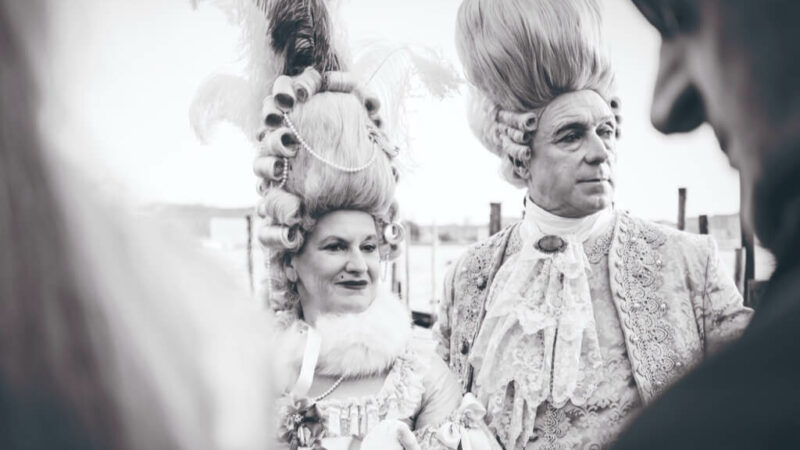Mickey Mantle’s Casino Controversy

On February 8, 1983, a significant event unfolded in baseball history as Mickey Mantle faced a dire ultimatum from Commissioner Bowie Kuhn. The warning stated that Mantle’s continued employment at the Claridge Casino in Atlantic City would lead to his inclusion on baseball’s permanently ineligible list, effectively banning him from all Major and Minor League Baseball-related activities. This bold move bore similarities to Pete Rose’s banishment due to his gambling activities and marked a turning point in Mantle’s legendary career.
At the time, Mickey Mantle’s role at the Claridge Casino primarily involved acting as an official representative. He occasionally worked as a greeter and participated in charity events hosted by the casino, including autograph signings and golfing activities. Despite Commissioner Kuhn’s firm stance that a casino was an unsuitable place for a baseball hero and Hall of Famer, Mantle found himself in a financial bind and believed it unjust that he couldn’t earn a living through this avenue. He chose to defy Kuhn’s warnings, ultimately leading to his placement on the permanently ineligible list.
Notably, Willie Mays found himself in a similar predicament and was added to the same list as Mantle for identical reasons. Mays, like Mantle, had taken on a role as a greeter and special assistant at a casino.
The banishment of both Mantle and Mays was relatively short-lived. With Peter Ueberroth taking over as commissioner in late 1984, they were reinstated and allowed to participate in MLB activities once more, beginning in 1985.
Bonus Facts
- Mickey Mantle’s name was derived from a misunderstanding; his father mistakenly believed that the Hall of Fame catcher’s first name was “Mickey,” when in fact, it was Gordon.
- George Steinbrenner, at one point, faced a ban from baseball. In 1990, under Commissioner Fay Vincent, Steinbrenner was banned for his involvement in hiring a private investigator to gather damaging information on Hall of Famer Dave Winfield. He was later reinstated by Bud Selig in 1993, with his son taking over the Yankees during his suspension.
- Marge Schott remains the only woman ever placed on the permanently ineligible list. In 1996, she faced a ban due to her controversial comments, primarily centered around racism and sexism. However, Schott was reinstated two years later and continued to oversee the Cincinnati Reds until 1999.
- Peter Ueberroth’s tenure as baseball commissioner began with success, leading to record attendance and financial improvements for many clubs. However, his involvement in encouraging collusion among team owners led to his resignation within five years. Collusion became apparent between 1985 and 1987 when position players couldn’t secure contracts longer than three years, and pitchers were limited to two-year deals. Free agents often received offers only from their current teams, causing major controversy. Ueberroth’s resignation came after the MLB Players Association filed a lawsuit, resulting in hefty fines for the owners.
- Mickey Mantle nearly missed his chance to play professional baseball due to a college football injury that led to a severe leg infection. Doctors initially considered amputation.
- In his autobiography, Mantle revealed that his father pressured him into marrying Merlyn Johnson, despite their separation fifteen years before Mantle’s passing. Mantle’s personal life was marked by numerous affairs, including one instance where he brought his mistress to his Hall of Fame induction ceremony alongside his wife.
- Mantle, like many in his family, struggled with alcoholism throughout his life. Following a liver transplant in 1995, he publicly acknowledged his mistakes and urged others not to follow in his footsteps. Tragically, he succumbed to cancer not long after.
Things You Didn’t Know About Mickey Mantle’s Life and Legacy
Mickey Mantle, a baseball legend known for his incredible talent and achievements on the field, faced personal demons that would significantly impact his life and legacy. One of the most prominent challenges he grappled with was alcoholism, a battle that ultimately played a pivotal role in his untimely death at the age of 63.
Throughout his career, Mantle was celebrated for his remarkable skills as a switch-hitter and his ability to hit towering home runs. He was adored by fans and revered by his peers. However, behind the scenes, Mantle struggled with the pressures of fame and the demands of the game, which led him down a path of alcohol abuse.
Mantle’s battle with alcoholism sheds light on the importance of addressing addiction issues in the world of sports. His story serves as a stark reminder that even the most talented and celebrated athletes can face personal challenges that impact not only their careers but also their lives. Mickey Mantle’s legacy includes not only his on-field accomplishments but also his courageous battle with addiction, which continues to resonate with those who seek inspiration and support in their struggles.
In the spring of 1969, the baseball world witnessed the end of an era as Mickey Mantle, the iconic Yankee legend, made the difficult decision to retire from the game. At the age of 37, Mantle faced the reality that his body could no longer withstand the rigors of professional baseball.
Throughout his illustrious career, Mantle had been plagued by leg and knee injuries, which had taken a toll on his physical condition. The decision to retire didn’t come easily for the Yankee icon, as he had given his all to the sport and had become an integral part of baseball history.
Mickey Mantle’s retirement marked a bittersweet moment for fans who had watched him dominate the game for nearly two decades. Despite the challenges and injuries he faced in his later years, Mantle’s impact on the sport and his enduring legacy continue to be celebrated by baseball enthusiasts around the world.
The 1960s were a pivotal decade in the career of Mickey Mantle, the New York Yankees’ legendary center fielder. During this period, Mantle faced both challenges and achieved remarkable milestones that solidified his status as one of the greatest players in baseball history.
By 1965, Mantle and the aging Yankees were slowed by injuries, leading the team to finish sixth in the American League rankings. Despite these setbacks, Mantle continued to make significant contributions to the team. He maintained an impressive batting average of .255, hit 19 home runs, and drove in 46 runs in 361 plate appearances.
During the 1960s, Mantle also earned All-Star selections, further highlighting his enduring talent and significance in the sport. While injuries and aging posed challenges, Mantle’s presence on the field remained instrumental to the Yankees and the game of baseball as a whole.
Mickey Mantle’s Hall of Fame Induction and His Controversial Past
Mickey Mantle’s induction into the Baseball Hall of Fame in 1974 celebrated his remarkable contributions to the sport. However, his legacy remains a subject of debate due to his controversial past, notably his struggles with alcoholism. The question arises: Should a player’s off-field issues impact their eligibility for the Hall of Fame?
Some argue that Mantle’s exceptional career statistics and status as a switch-hitter should solely determine his Hall of Fame worthiness. Supporters contend that personal struggles should not overshadow on-field accomplishments. Conversely, critics assert that character and behavior should play a role in determining eligibility, emphasizing the importance of being a role model for future generations. This debate raises fundamental questions about how the Hall of Fame should honor athletes and whether their personal lives should be considered.
How Have They Changed Over Time?
Mickey Mantle’s banishment from baseball in 1983 for his involvement with a casino reflects the league’s approach to disciplinary actions. Yet, the landscape of banishment policies in professional baseball has evolved. This topic explores the historical shifts in baseball’s banishment policies and the factors influencing these changes.
Historically, bans from baseball often targeted actions like gambling and game-fixing. However, as societal attitudes have evolved, so too have the considerations for disciplinary actions. Questions arise about the balance between punitive measures and rehabilitation, as well as the broader implications of these policies for the game and its players.
Mickey Mantle’s Influence on Young Athletes
Mantle’s battles with alcoholism and health issues provide valuable lessons for young athletes about the importance of seeking help and making responsible choices. However, some argue that the focus should remain on his incredible on-field achievements, separating his personal life from his professional legacy. This debate raises questions about the ethical obligations of sports figures and the impact they have on the next generation of athletes.
His legacy as a baseball icon, with its moments of triumph and tribulation, continues to resonate with fans and scholars alike. Mantle’s banishment and subsequent reinstatement remind us that even the most celebrated athletes are not immune to the challenges of life. It underscores the ongoing dialogue surrounding issues like addiction, disciplinary measures in sports, and the enduring influence of athletes on the next generation.



